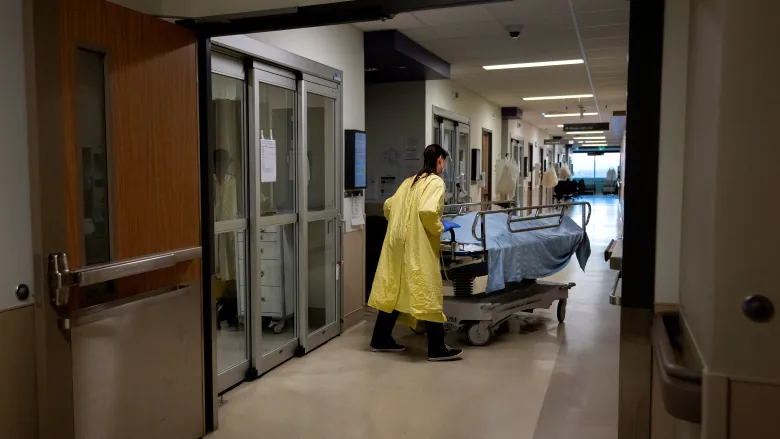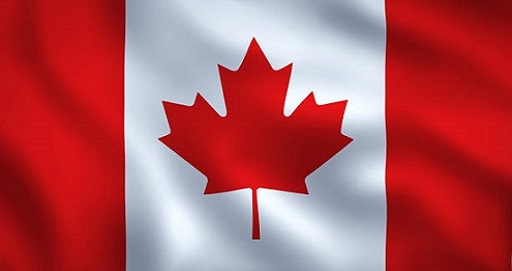- Your cart is empty
- Continue Shopping
N.B.’s COVID-19 deaths under 80 higher than national average, says researcher

48% of deaths in province are younger people compared to 40% across Canada, Tara Moriarty finds
The proportion of people younger than 80 who have died of COVID-19 in New Brunswick is higher than the national average, according to an infectious disease specialist at the University of Toronto.
About 48 per cent of reported COVID deaths in the province since the beginning of the pandemic have been people under 80, associate professor Tara Moriarty said Friday night.
She was correcting what she told CBC News earlier in the day, when she mistakenly provided excess mortality data instead of reported deaths.
This compares to about 40 per cent across Canada, she said, excluding Nova Scotia, P.E.I. and the north, for which deaths by age group data is not available.
“This is almost a proxy for how well provinces have managed COVID,” according to Moriarty. Deaths among people under 80 should be closer to Quebec’s proportion of 31 per cent, she said.
The Department of Health did not respond to a request for comment.
- Masking still a choice, but risk of COVID-19 reinfection is real, says Russell
- New Brunswickers falling behind on routine vaccines, survey finds
Moriarty’s findings come on the heels of an updated Statistics Canada report earlier this month, which showed New Brunswick had the highest “excess death” rate among the provinces during the last six months of 2021, as the Delta and Omicron variants raged.
An estimated 4,599 people died in New Brunswick during the final 25 weeks of 2021, Statistics Canada found — 886 more than long-term averages for that time of year after adjusting for population growth and aging.
It is a death rate 23.9 per cent above normal, the highest rate of “excess mortality” among provinces over that period, ahead of other high rates posted by British Columbia, Saskatchewan and Alberta.
Health Minister Dorothy Shephard has said she is concerned about the unexplained high death counts and will attempt to get to the bottom of what happened.
Delayed impact
Moriarty, who has analyzed COVID-19 mortality in Canada since the beginning of the pandemic, said there have been “disproportionately a lot more” people under 80 dying from COVID in many regions since about July 2021, compared to the period before vaccines were available.
This is “particularly pronounced” in New Brunswick because “for the most part, COVID was very well controlled” until around July 2021, when mortality really started increasing.
“And most people older than 80 were well protected by vaccination by that point,” she said.
So “the number of younger people who have died account for a larger proportion of total deaths.”
Other provinces, meanwhile, had a lot of mortality before July 2021, pre-vaccines, when people over 80 were most vulnerable.
“So that brings that [under 80] ratio down because there were more deaths in people 80 and older.”
The proportion of reported COVID-19 deaths of people younger than 80:
- Alberta — 47 per cent
- B.C. — 41 per cent
- Manitoba — 50 per cent
- New Brunswick — 48 per cent
- Newfoundland and Labrador — 50 per cent
- Ontario — 42 per cent
- Quebec — 31 per cent
- Saskatchewan — 55 per cent
- Canada — 40 per cent
*Does not include Nova Scotia, P.E.I., north

New Brunswick has had 422 COVID-19 deaths, as of this week’s COVIDWatch report.
Moriarty suspects those are underreported “by at least twofold,” which she described as “the norm” across Canada, with the exception of Quebec.
The numbers for younger deaths are likely “more complete and more accurate” than older deaths, she said. In older people, for example, COVID deaths might be attributed instead to a co-morbidity, such as diabetes or cardiovascular disease.
The age breakdown of the 422 reported COVID deaths in New Brunswick to date includes:
- 20-39 — five
- 40-59 — 35
- 60-79 — 164
- 80 and older — 218
“It’s important for people to understand that COVID is serious, or can be very serious, in people younger than 80. And that perception that it’s not has, I think, prevented some people, or slowed the efforts of some people, to protect themselves better by vaccination or masking and other types of measures,” said Moriarty.
“It’s really crucial that people get their vaccinations up to date and mask if the risk in their region is elevated, and still try to maintain precautions to protect yourself and other people because COVID is killing more people than expected who are younger than 80.”
No plans to expand 2nd boosters
New Brunswick has no immediate plans to expand eligibility for fourth doses, according to Department of Health spokesperson Valerie Kilfoil.
Right now, second boosters are available only to people aged 50 or older, long-term care residents and people 18 or older from a First Nation, Inuit or Métis background, at least five months after their latest dose.
“Public Health is strongly recommending a second booster dose of COVID-19 vaccine to individuals aged 70 or over and long-term care residents, as evidence continues to show that age is one of the highest risk factors for severe outcomes and hospitalization,” Kilfoil said in an emailed statement.
“We continue to monitor the risk to all other age groups, and the need to distribute vaccines in fall 2022, or earlier if required.”
Earlier this week, Chief Medical Officer of Health Dr. Jennifer Russell told CBC that 15.7 per cent of eligible New Brunswickers have received their second booster, up 2.7 per cent over the previous week.
Among those 70 and older, the fourth-dose rate is now 26.4 per cent, she said.
“What we do know is that the best protection is to get vaccinated. You know, the timing of that. is there waning immunity, et cetera, that’s why the boosters are so important. So anybody who is eligible for that fourth dose should be getting it.”
Among youth, 82 per cent of those aged 12 to 19 have received two doses of a vaccine, while 40 per cent of those aged five to 11 have received both shots.
The department is working with its partners to prepare for the rollout of vaccines for children aged six months to five years old, once Health Canada gives its approval, Russell said.
Last week, Canada’s Chief Public Health Officer Dr. Theresa Tam warned that vaccine efficiency wanes significantly over time, from 50 to 80 per cent down to 20 per cent or lower six months after the second dose.
Two doses are no longer enough protection, she said.
The federal government plans to change its definition of what it means to be fully vaccinated against COVID-19, Health Minister Jean-Yves Duclos said earlier this week.
“Although two doses still protects significantly well against severe disease and death, two doses are not enough now to protect against infection and transmission,” he said.
“That is why we are transitioning now to an ‘up-to-date’ vaccination definition of what it means to be adequately protected against COVID-19.”
As it stands, the government’s definition of fully vaccinated is two doses of an approved COVID-19 vaccine or one dose of the Johnson & Johnson vaccine.
The federal government is going to work closely with the provinces and territories over the “next few weeks and months” to “increase significantly” the rate of third doses, said Duclos.
Canada’s rate of booster doses is “too low — it’s lower than all other G7 countries,” he said. “And that is not good.”








